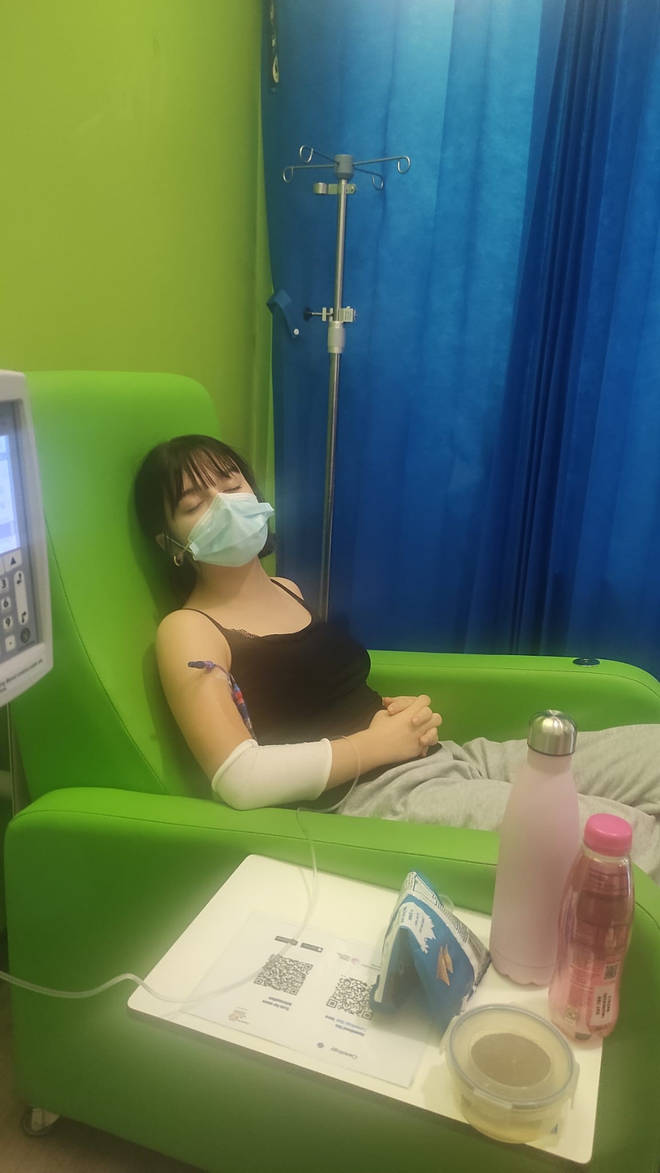Is it time to change the law governing international examinations so that children who are, for example, navigating critical illnesses like cancer, are not put through formal exams and, instead, are treated with compassion through Teacher Assessed Grades?
Is it time to overhaul the way that school inspections are carried out, and reported, to better and more compassionately reflect the performance of schools and students?
In the UK, both issues are now increasingly hitting the headlines – and both are issues with implications in the UAE on students and schools here.
In British education, for example, although a Certificate of Recognition can be offered by examination boards instead of a child having to sit exams in cases of critical illness, commentators and parents point out that this is not enough. A Certificate of Recognition does not actually award grades, but, instead, states only what a student “might have achieved” had they sat the examinations.
Parents and commentators are asking why, if it was sufficient during Covid for students to have Teacher Assessed Grades in, for example both the British and IB systems, when they also could not sit exams fairly, is it not equally appropriate for students to be awarded Teacher Assessed Grades in cases where they have cancer, or are facing other serious impediments to sitting examinations, or their gifts being inaccurately reflected in them if they are forced to.
In most cases, schools and parents argue, for every child, there is a reflective history of project work, internal examinations, mocks – and the deep rounded knowledge each teacher has of their students, that is more than sufficient to calculate and justify a Teacher Assessed Grade.
How can a student sitting exams in the midst of chemotherapy, for example, be expected to achieve to their potential – or even be able to sit an examination at all?
It is an international problem. Many argue that the system for awarding grades, and particularly in these circumstances, is fundamentally cruel. One UAE teacher told SchoolsCompared today that the current system in practice “throws the most vulnerable children under a bus.” They continued:
“We are placing compassion, values, happiness at the centre of outstanding educational practice – but the system is not supporting us when it matters.”
The issue first gained major global traction because of the situation which faced UK student Grace Sanderson who was diagnosed with Acute Myeloid Leukaemia in March 2022 and who spent the majority of her time in a UK hospital instead of in a classroom. She had been told that she must sit her exams from a hospital bed to get a grade.
Close to 220,000 people signed the petition calling for Teacher Assessed Grades to be awarded to children like Gracie to prevent sick teenagers in future being “penalised”.
You can still sign the petition here.
The situation has again arisen this month (March 2023) with UK student Lara Kyprianou-Hickman, a 16-year-old schoolgirl with cancer, who has now also been told that she has to sit her GCSE exams, despite having Hodgkin Lymphoma Type 2B.

Lara has just finished her first round of chemotherapy and is due to start her GCSE’s on the 15th May 2023
Sophia Kyprianou, Lara’s Mum, and also herself a teacher, said to LBC:
“My daughter has sat two full sets of mock exams under exam conditions and had 100% attendance before her diagnosis and she works hard and diligently at school.
“Despite all her hard work and effort, she has been told by the exam boards that if she is too poorly to sit her exams, she will not get any grades.
“They will not consider Teacher Assessed Grades at all. We ask that the exam boards take into account individual circumstances and award fair teacher assessed grades as they did throughout Covid.
“We are not asking them to do anything which has not been tried and tested. Our daughter and other teenagers in similar situations should not be penalised for having cancer.”
The UK government is currently unwilling to budge, but any changes, should they eventually be pushed through, would almost certainly be rolled out for students sitting British qualifications internationally, including in the UAE. The British government’s position, currently, is that student’s should defer examination or take them whilst in hospital receiving treatment.
We have forgotten compassion and fairness in inspections too, as well as exams, say critics…
Interestingly, the UK government is also coming under fire for its system of school inspections by Ofsted, the UK’s equivalent to regulators including the KHDA and ADEK, following the tragic death of an outstanding Head whose school was downgraded following an inspection. It is argued that awarding single word grades for a school’s performance is misleading, damaging to teacher and leadership morale, and that “parents are perfectly able to read an inspection report.”
You can read our article explaining the growing demands for changes to school inspections here.
If, as seems likely, the UK eventually withdraws the use of terms like “Outstanding” and “Very Good” from its Inspection Reports, the pressure will grow on calls to overhaul examinations too – as the arguments for and against both the way exam grades and inspection results are awarded and reported are similar.
It can be argued that awarding children a single grade in examinations, rather than, for example, providing children with a personal report highlighting their achievements, strengths and weaknesses, in the round, over the course of their studies, would be far more reflective of a child’s achievements than one day’s performance in an exam. It is argued that, as outstanding schools move increasingly to focus on a whole child education for children, and investment in 21st century skills like emotional intelligence and creativity, examinations are becoming increasingly incongruent, unfair, arbitrary, regressive and archaic in deciding the future of students.
You can read our article arguing that GCSE exams should be abolished here.
The UAE is significantly more advanced than the UK in its inspections in creditably now including the happiness of students in its overall accreditation of a school’s performance. It will be interesting to see if, should the UK abolish the simplification of fixed gradings, the UAE follows suit – or, indeed, as in so many areas of education, acts first.
Further information
© SchoolsCompared.com. A WhichMedia Group publication. 2023. Image copyright LBC. All rights reserved.








































































Leave a Response